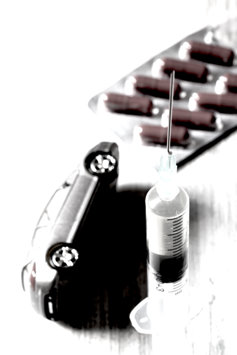Is Drug Rehab Worth the Cost?

The cost of a good rehab can be daunting to a family… Foresight can save a family many tens of thousands of dollars and perhaps even lives.
What are the costs of drug rehabilitation? Perhaps the only way to determine the value of the cost of a drug rehab program is to consider what will happen if rehab is delayed. Unfortunately, this takes accurate foresight, difficult to develop unless one already has close-up experience with an addicted person.
“I’ve spent $60,000 on my son’s medical and legal expenses and what he stole from me. Drug rehab is cheap compared to what I’ve paid.”
Consider this example of a person who only learned this lesson with hindsight, not foresight: In the front of the room, a woman was talking to a group from a small town about recovery from addiction. A person in the audience asked how much it costs to put a person through rehab. When the speaker answered, the person retorted, “Drug rehab is so expensive!” Another person in the audience began to laugh. “I’ve spent $60,000 on my son’s medical and legal expenses and what he stole from me. Drug rehab is cheap compared to what I’ve paid.”
It’s hard to have this kind of realization until after you’ve lived through attempts to save a person from addiction. It’s only after the bills have mounted up that the real cost begins to be obvious.

What does a family face when one of their loved ones is addicted? Costs like these:
- Hospitalizations and doctor’s costs from drug-related infections, illnesses, overdoses and other conditions
- Loss of household items, jewelry, electronics and other valuables to theft
- Theft and embezzlement from businesses
- Damage to home, businesses or vehicles
- Costs related to arrests and incarceration
- Lawyer’s fees
- Injuries to the spouse, children, parents, grandparents or other family members
- Caring for children of the addicted person
The brutal truth is that these terrible costs are going to be borne by the family until the day that addiction is addressed by an effective rehab program.
Bills to Pay
By the end of a loved one’s addiction, there’s often high credit card debt and the cost of unpaid taxes or divorce.
One woman whose sober husband relapsed into a methamphetamine habit was left with $60,000 in credit card debt and $40,000 in IRS debt. It took her years to process a bankruptcy with the help of a lawyer, to negotiate with the IRS, and to recover emotionally and financially from the experience. Add to that the cost of her divorce. Unfortunately, this phenomenon is more the norm than an exception.
A person addicted to heroin may be paying $50 a day or more for the drug. This money has to come from somewhere, and if the person is not now (or never has been) a “functioning" addict capable of holding a job, then some kind of dishonest activity may be required to pay for these drugs. It could be theft of valuables or cash, shoplifting items and then selling them or getting refunds on them from stores, or prostitution. Or it could be continuous “borrowing” from friends or family until they realize they’re never getting their money back.
If an addicted person receives an infusion of cash such as inheritance or settlement of some kind, it’s very common for that cash to be completely eaten up by the addiction, usually quite quickly.
Simply put, addiction is expensive. Very, very expensive.
Foresight in This Situation Is Rare… but Infinitely Valuable

Imagine this: A parent realizes that the strange and continuous problems experienced by an adult son add up to drug use. There’s been lost jobs, traffic tickets, car accidents, relationship problems, illnesses or fatigue. Then there might be direct signs of drug use such as needles, marijuana stashes, empty alcohol or cough medicine bottles. The realization of the real reason for the person’s problems suddenly dawns. The “lost” jewelry or other valuables now make sense.
For most people, it’s extremely hard to fully face the extent of the problem at this very moment. Denial is a common reaction. There might also be the hope that the family can get through to this person to break off their drug use.
There’s probably going to be multiple chances offered to this person when they promise to do better. But until the moment this person walks through the door of an effective rehab program, the financial losses are going to continue to add up.
If this parent (or spouse, sibling, grandparent or other family member) had 100% sharp foresight, they’d see how the astronomical costs would add up in the future. And they would realize that making rehab happen right now, right this minute, is going to be less expensive than letting this addiction continue for an hour longer than necessary.
Personal and Emotional Costs
These costs should not be overlooked. The emotional toll of watching a loved one go through the deterioration associated with drug or alcohol addiction is devastating. It can take years to recover and some people will never feel the same after losing someone they dearly loved to drugs or drink. Along with the emotional suffering is very often a diminished ability to flourish in business or on the job.
The one other cost that should be mentioned is the very real possibility of the loss of the loved one’s life. With the presence of fentanyl not only in heroin supplies but also in cocaine, methamphetamine and other drugs, it’s too easy to lose one’s life. That cost is simply too high to be borne.
A good and effective rehabilitation program is not cheap. Families sometimes have to pool their resources to cover the cost if insurance isn’t available to cover the cost.
My wish for you is that the information in this article helps you develop the foresight you need to realize the real costs involved in letting addiction continue. In this situation, foresight can save a family many tens of thousands of dollars and perhaps even lives.
Reviewed and Edited by Claire Pinelli, ICAADC, CCS, LADC, RAS, MCAP


 ®
®